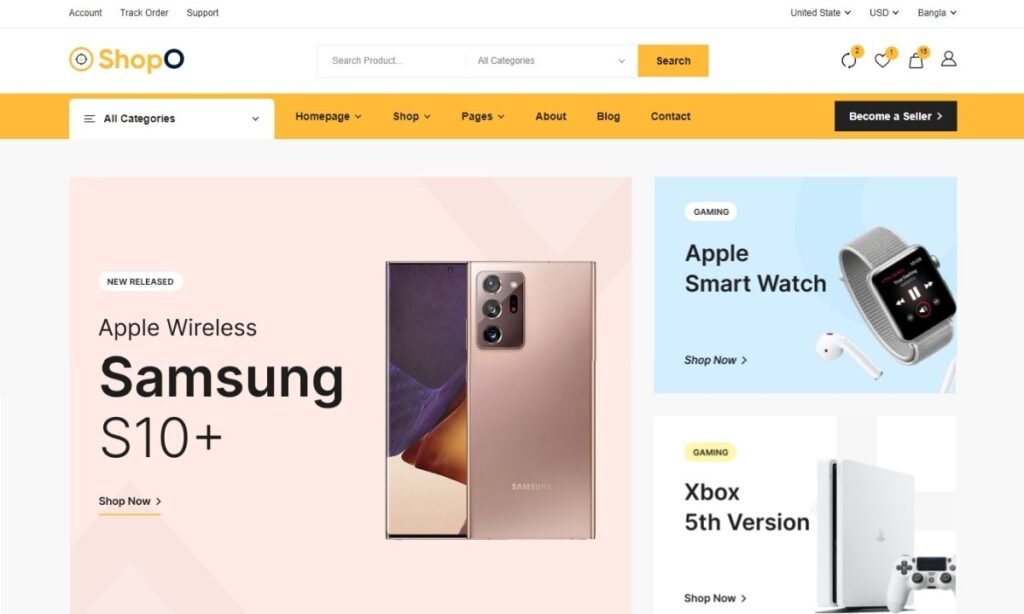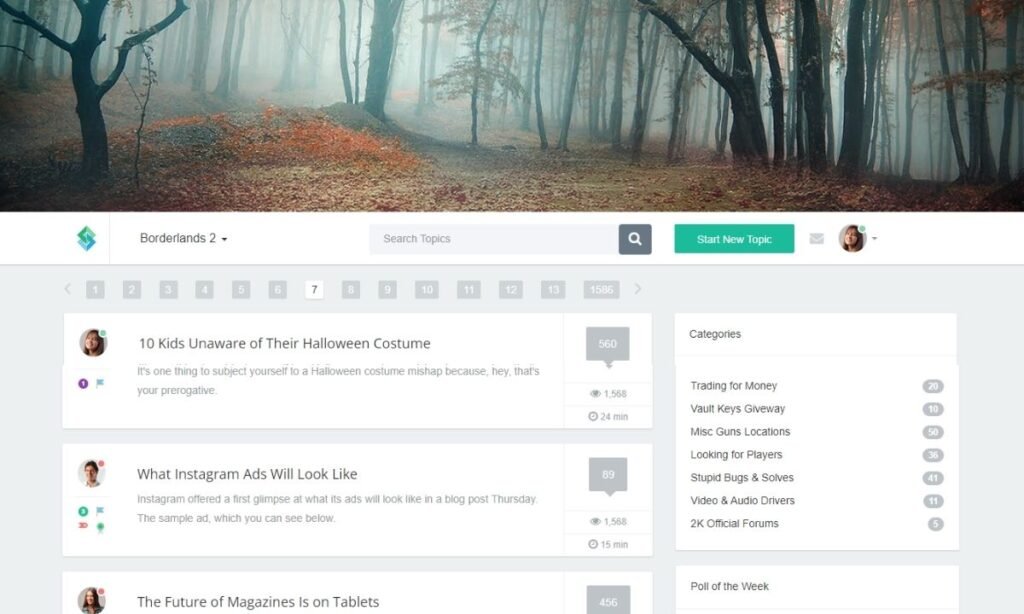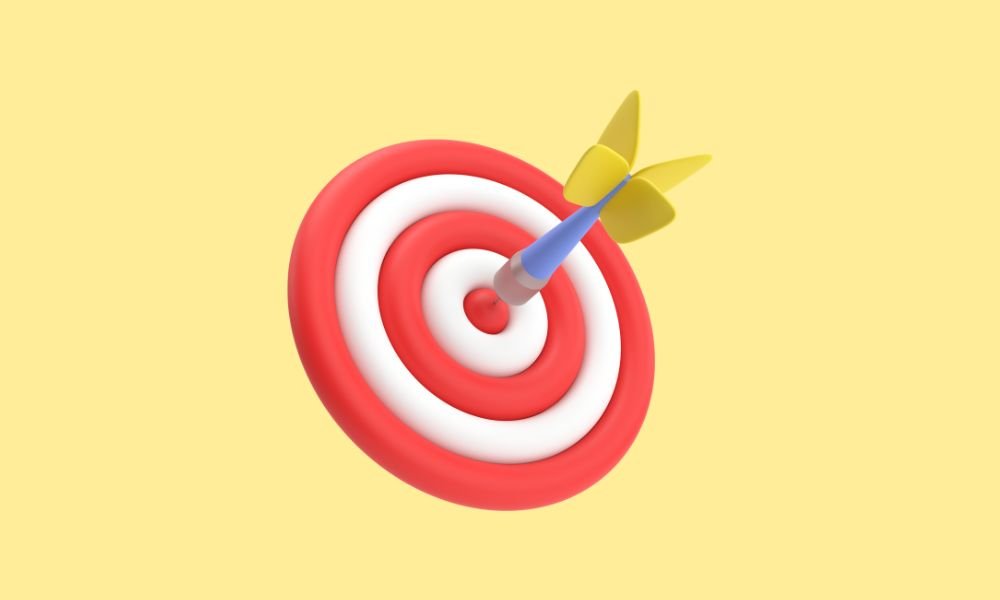Most people ask what you will provide to get users to visit your website. Is your website just a brochure or a business card?
Depending on the targeted audience, different websites have different objectives. Some websites specialize in selling, providing information, entertaining content, etc. As a beginner in the website arena, it’s critical to think about the purpose of your website, but it is an essential part of creating a thriving online presence.
Knowing the website’s purpose, allows you to create a clear mission statement, choose the right website type, and ultimately provide a better experience for your customers.
We’ll share how important it is to define your website’s goals and purpose. We’ll start by talking about why websites are important and what are the seven most popular types of websites.
Understanding Website Purpose

Without a clear purpose, your website can become cluttered, confusing, and irrelevant to your audience. When choosing your website’s design, content, and functionality, it’s critical to understand your website’s purpose.
Here are some reasons why it’s necessary to understand the purpose of your website:
It keeps you focused:
Defining your website’s purpose keeps you focused on what’s important. Its guarantees that every part of your website, from design to content, is aligned with your goals.
It helps you to connect with your audience:
The main goal of a website is to help you focus your audience by understanding what you offer and how you can help them. It connects people to your brand and encourages them to engage with your website.
It makes measuring success easier:
Having a defined website goal makes it easier to measure the success of your website. It enables you to set specific goals and track your progress toward them.
Decide what you want to achieve: What is the purpose of your website? Do you wish to sell things, create leads, provide information, or entertain your audience?
Defining your website’s purpose can be difficult, but it’s necessary.
Types of Websites
There are different types of websites, each with its own purpose. Some make money by selling products or services and providing information about their business.
We categorize the seven major categories of websites based on their features.
Portfolio or Personal Websites
Business Websites
Blog Websites
Ecommerce Websites
Social Media Websites
Forum Websites
Membership Websites
Portfolio or Personal Websites
Portfolios and personal websites showcase an artist’s skills, work, and achievements. Artists, photographers, designers, and other creative professionals commonly use these websites to showcase their work and promote their services.
Portfolio or personal websites often include the following features:

- A portfolio or gallery section to showcase work
- An “about me” page that introduces the artist and their background.
- Contact information or contact forms to facilitate inquiries and potential work options.
- Testimonials or feedback from previous clients or collaborators
- It’s necessary to keep the focus on the individual’s work and talents while creating a portfolio or personal website.
The website should be visually appealing and easy to use, with a clear call to action for potential clients or collaborators to contact you.
Examples of portfolio or personal websites:
- Behance
- Dribbble
- Medium
Check Amazing Portfolio Templates
Business Websites
When it comes to creating a website for your business, it’s important to remember that your website acts as a digital representation of your brand. This is often a potential customer’s first impression of your business, so making a good one is crucial.
Features of a business website include:

- Clean branding: Your website is a clear picture of your brand, including logos, colors, and typography.
- Easy Navigation: Users can easily find what they are looking for on your website. The navigation menu should be clear and concise.
- Contact Information: Including contact information such as phone numbers, email addresses, and physical addresses is essential so customers can reach your business.
- Product or Service Description: Customers should be able to easily understand what your business offers, including product or service descriptions, pricing, and photos.
- Definitions and reviews: Adding positive customer reviews and testimonials can help build trust with potential customers.
Overall, a business website should be professional, easy to navigate and provide all the details that possible customers may need to make an informed decision about your products or services.
Examples of business websites:
- Apple
- Nike
- HubSpot
Check Amazing Business Templates
Blog Websites
Blog websites are used to regularly share informative or educational content. Individuals or businesses create these websites; Content can range from personal experiences to industry news and analysis. Blog websites are usually revised, with new posts, regularly.
Features of blog websites:

- Posts are arranged by date and category for easy navigation
- Comment sections for readers to engage and provide feedback
- Search functionality to easily find content
- Social sharing buttons to promote content on social media
- Option to subscribe to a newsletter for updates on new posts
- Archives of past posts for reference
Examples of blog websites include popular sites like HuffPost, Mashable, and TechCrunch, as well as individual blogs like Seth Godin’s marketing blog and Tim Ferriss’s personal development blog.
Ecommerce Websites
E-commerce websites are designed to sell products or services online. They are popular with businesses of all sizes. It is fast becoming a preferred way of shopping for consumers. E-commerce websites can be standalone websites or an extension of a physical store.
Features of e-commerce websites:

- Product Pages: E-commerce websites have a large inventory of products, each with its product page. The product page contains detailed information about the product, including product images, specifications, descriptions, and pricing.
- Shopping Cart: E-commerce websites have a shopping cart feature that allows users to add products to their cart while browsing the website.
- Payment Gateway: E-commerce websites have a payment gateway, which allows customers to make payments online securely. Payment options may include credit/debit cards, PayPal, and other digital payment methods.
- Order Management: E-commerce websites have an order management system that tracks orders from placement to delivery. The system includes features such as order confirmation emails, shipment tracking, and return and exchange management.
- Definitions and reviews: Adding positive customer reviews and testimonials can help build trust with potential customers.
Examples of e-commerce websites:
- Amazon: The world’s largest e-commerce website offers a wide selection of products from books to electronics to clothing.
- Etsy: Etsy is a popular e-commerce website for handmade and vintage items.
- Zappos: Zappos is an e-commerce website that specializes in shoes and clothing.
- Shopify: Shopify is a platform that allows businesses to build their e-commerce websites, offering features such as inventory management and payment processing.
Check Amazing Ecommerce Templates
Social Media Websites
Social media websites are online platforms where users can interact and engage with each other by sharing content, messages, and information. Social media websites have become an essential part of our lives, and they have also become a crucial component of marketing strategies for businesses.
Features of social media websites:

- Sharing and creating content: Social media websites allow users to share and create content in various forms like text, images, videos, and audio.
- Networking: Social media websites enable users to network and connect with other people, businesses, and communities. Users can follow, like, and share content from other users and businesses.
- Engagement: Social media websites facilitate engagement through comments, likes, shares, and reactions. Users can interact with each other and build relationships.
- Analytics: Social media websites provide analytics tools that allow users and businesses to track and measure their engagement, reach, and performance.
Examples of social media websites:
- Facebook: With over 2.7 billion active users, Facebook is the largest social media platform globally. Facebook enables users to connect with friends, family, and communities, and it also offers advertising options for businesses.
- Instagram: Instagram is a visual social media platform that focuses on sharing images and videos. It has over 1 billion active users, and it is popular among businesses and influencers.
- LinkedIn: LinkedIn is a professional social media platform that focuses on networking and career development. It has over 740 million users, and it is an excellent platform for businesses to connect with other professionals and showcase their expertise
- YouTube: YouTube is a video-sharing social media platform provides users to upload, share, and view videos. With over 2 billion active users, it is the second-largest search engine after Google.
Forum Websites
Forums are online discussion sites where people can post messages and engage in discussions with others on a particular topic. Forums are often used for support groups, hobby enthusiasts, and niche communities.
Some common features of forum websites:

- Categories and subcategories: : Forums are usually organized by categories and subcategories to help users find topics of interest.
- Threads and posts: : Users can start a new topic, known as a thread, or reply to an existing one by posting a message.
- Moderation: Forum administrators or moderators monitor the content posted to ensure it is appropriate and follows the forum’s rules.
- User profiles: Users can create a profile that includes their username, photo, and other information about themselves.
Examples of forum websites:
- Quora
- Stack Exchange
Membership Websites
Membership websites are designed to provide exclusive access to content, products, or services to registered members. Users typically pay a subscription fee or a one-time fee to access the site’s features. These sites are commonly used for online courses, private communities, and other exclusive content.
Features of membership websites:

- Registration and login system
- Membership plans and payment options
- Member profile pages
- Exclusive content and resources
- Forums or discussion boards
- Private Messaging
- Events and webinars
Examples of membership websites:
- LinkedIn Premium
- The New York Times
- Skillshare
Check Amazing Membership Templates
Defining Your Website’s Goals

Clear goals are necessary for the achievement of your website. It guides you through the strategy of determining what content to add, how to organize your website, and what metrics to track. Here are some methods to help you establish specific goals for your website:
Determine your target audience:
Decide who your website is for and what they want. This will assist you in developing content and features that are suited to your target audience.
Decide what action you want your visitors to take:
What do you want your website visitors to do? This could be purchasing a product, completing a form, signing up for your newsletter, or contacting you for further information.
Choose measurable metrics:
Determine metrics that will assist you in tracking the success of your websites, such as traffic, conversions, bounce rates, or time on site.
Write a mission statement for your website:
This should be a simple statement that defines the main goal of your website and what you intend to achieve.
Examples of website goals:
- In the following six months, increase website traffic by 20%.
- Make 50 leads per month through the website.
- Boost your online sales by 15% in the coming year.
- Decrease bounce rates by 10% during the following three months.
Setting goals for your website will help you stay focused on what’s important and guarantee that your website is capable of achieving those goals.
Creating a Mission Statement

A mission statement is a quick explanation of a website purpose and goals. It helps in decision-making and ensures that all content and design decisions are consistent with the stated goal of the website. When drafting a mission statement, keep the following points in mind:
Importance of a Website Mission Statement
- It gives clarity and focuses on the purpose and goals of the website.
- It helps in identifying the website from others in the same business or niche.
- It guides design and content decisions, ensuring that they are consistent with the website’s objective and purpose.
- Exhibiting a clear purpose and devotion to satisfying their requirements, helps to develop credibility and trust with visitors.
Components of an Effective Mission Statement
Straightforward and Concise:
The mission statement should be simple and to the point, explaining the purpose and goals of the website.
Reflects the Website Purpose:
The mission statement should accurately reflect the intended purpose and aims of the website.
Speaks to the Intended Audience:
The mission statement should speak directly to the website’s target audience’s needs and interests.
Inspirational and Motivating:
The mission statement should be inspiring and motivating, adding to the website’s feeling of purpose and direction.
Mission Statement Examples
Here are some examples of well-crafted mission statements:
Airbnb: “Belong Anywhere” – This mission statement reflects Airbnb’s purpose of delivering unique, personalized travel experiences that help people to feel at home anywhere in the world.
TED: “Spread Ideas” – This mission statement is simple but effective, representing TED’s purpose of sharing innovative ideas and encouraging creativity and inspiration.
Charity: Water: “We’re on a mission to bring clean drinking water to every person on the planet.” – This mission statement expresses Charity: Water’s purpose of tackling a vital worldwide issue while also making a positive difference in people’s lives.
In summary, a well-crafted mission statement may give your website clarity, focus, and direction. It should be clear, simple, and inspiring, reflecting the website’s intended purpose and aims while speaking directly to your target audience’s needs and interests.
Benefits of a Well-Defined Website Purpose

Building Credibility
Having a clear goal for your website can help you develop credibility and trust with your target audience. People who visit your website want to know that they can rely on you and your company.
A mission statement that is clear and succinct will help you communicate your values and aims to your audience and make a positive first impression.
Enhancing the Client Experience
A clear website purpose can also enhance the customer experience. By offering relevant and useful information, you may assist your audience in swiftly and simply finding what they are looking for.
Making your website simple to use can also contribute to a great user experience. Furthermore, providing a tailored experience through targeted information and recommendations can aid in the development of better ties with your clients.
Assisting with Marketing and Sales Activities
Finally, a clear website objective can help your sales and marketing operations. You can generate leads and sales by driving traffic to your website using search engine optimization (SEO) and other strategies. You can increase customer loyalty and drive repeat business by giving interesting and relevant information.
A clear website purpose can help you better match your marketing and sales efforts with your overall business goals, resulting in greater success and growth.
Conclusion:
Whether you’re building a portfolio website, an ecommerce site, or a business website, taking the time to determine the goal of your website will pay off in the long run. Your website is frequently your audience’s first point of contact, and having a clear goal will help you establish trust, improve the customer experience, and support your marketing and sales activities.
In summary, identify your target audience, clarify your objectives, and write a precise mission statement that describes your purpose. If you follow these steps, you’ll be well on your way to creating a great website that meets the needs of your audience while also supporting your business goals.
Are you ready to create a website strategy to move toward your goals? Contact us for your website!



